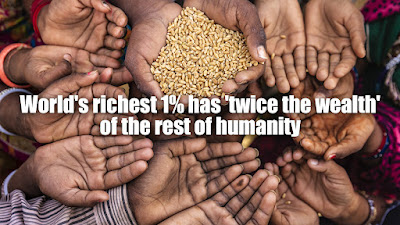Friday, November 26, 2021
"Why the ‘Make America Worse’ Bill Will Lead to Higher Inflation"
Gerald Celente, "African Virus Variant Plunges Market, Worst Is Yet To Come"
"A Look to the Heavens"
"Perhaps Everything Terrible..."
“Are You Sane?”
Gregory Mannarino, "Alert! Alert! Banks Warn On New Variant; An ER Dr Comes Forward to Tell The Truth"
"No Victms..."
"Give Thanks for the One Percent"
BALTIMORE, MARYLAND – "This week, a hush falls over headquarters. Office phones ring with no one to answer them. But we continue our lonely vigil, watching over the world of money… dumbstruck by the complex majesty of it… and a little bummed out by the scammy fraud perpetrated by Federal Reserve economists
We drove out of the city to look at a colleague’s new house. The house is on farmland in one of the most attractive suburbs, just 15 minutes from the heart of Baltimore It is a huge, rambling affair built in the 1870s, with a large wing for servants added in the 1920s. One of Baltimore’s leading lawyers had owned it. His widow lived there until she died in her 90s Now, under a new owner, the house is about to get a major facelift. New wiring, new plumbing… walls torn down… a new master suite… an addition for utilities… a four-car garage… a toolshed transformed into a “man cave.”
No Holding Back: Our friend is not one to hold back. He lives large… no matter what the cost. The house already has more than 9,000 square feet of space. When he’s finished, it will probably have more than 10,000. “You are aware that this is going to cost a fortune,” we said to the new owner.
“Yeah. How much do you think it will cost to fix this place up?” “Five million?” “Oh, and I’m going to tear up all the floors and put in radiant heat. And a new kitchen. “Six million? This is crazy. It’s a nice house. Why not just live in it as it is? All you really need to do is to put in a new bathroom. Okay, maybe a new kitchen. But why buy a nice old house just to tear it up?”
"You are such a penny-pincher. What is money for, if you can’t use it to build the house you want where you want it? I don’t get any pleasure out of looking at my account balance. I’ll get real pleasure for many years out of this house. “I don’t mind spending money. It’s fun. I’m not like Warren Buffett. And I’m not like you. I don’t want to live in a simple house in Omaha all my life. And I don’t care about creating a family legacy. I’m going to enjoy my money.”
Economist’s Dream: Our friend is an economist’s dream. He consumes mightily. His consumption makes him happy. And it sets in motion hundreds of wheels that turn toward more getting and spending all over Baltimore, the U.S., and the world.
The Financial Times elaborates: "Consumption is the purpose of economic activity and allows us to meet our material aspirations in the pursuit of happiness. The valid concern about household debt is therefore not that it is fuelling consumption, but that it might detract from future expenditure because, for prudent families, debt service gets in the way of other spending. The elderly and the dead, who realized their property assets, tend not to spend so much.
Naturally, there are legitimate concerns about the sustainability of the recovery, but most are not related to consumption… Consumption growth is therefore necessary for the sustainable longer-term growth that people of a puritanical bent so desire… The alternative to the unexpected boost to consumption this year would have been much worse: continued stagnation, higher unemployment, lower incomes and worse public finances."
So, as the year’s end approaches, we should resist the puritan within all of us. Let us celebrate consumption…
In Honor of Spendthrifts: Our friend is doing his part. The marble for his new countertops will be cut in Italy… making employment for stonecutters and shippers. Carpenters will spend months knocking together frames and staircases. Heating and air-conditioning specialists, architects, wallpaper salesmen, decorators, roofers, electricians, plumbers, surveyors – all will be contracted to help our friend build the house of his dreams..



























